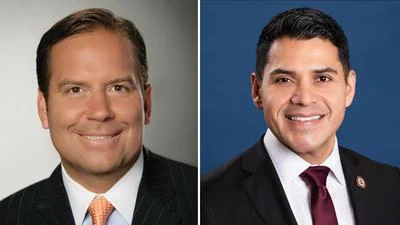Daniel Derksen Associate Vice President at Arizona Center for Rural Health | Official website
Daniel Derksen Associate Vice President at Arizona Center for Rural Health | Official website
Access to accurate data is crucial for making informed public health decisions. However, epidemiologists and public health workers serving Native American communities often face significant challenges due to restricted access to the latest data from state and federal agencies.
The 2010 reauthorization of the Indian Health Care Improvement Act granted tribal epidemiology centers public health authority, requiring the federal Department of Health and Human Services (HHS) to provide them with data and other protected health information regularly distributed to state and local officials. Despite this mandate, tribal epidemiology center workers have reported frequent difficulties in accessing such information.
By July 2020, American Indians and Alaskan Natives had a COVID-19 infection rate 3½ times higher than that of non-Hispanic whites. While issues with data access existed before the pandemic, the high infection and death rates among Native American communities highlighted the need for improved data-sharing mechanisms. Tribal health officials have indicated that these data denials hindered their response efforts during disease outbreaks, including contact tracing during the pandemic and managing an ongoing syphilis outbreak in the Midwest and Southwest.
“We’re being blinded,” said Meghan Curry O’Connell, chief public health officer for the Great Plains Tribal Leaders’ Health Board and a citizen of the Cherokee Nation. Although there has been some improvement in recent years, she noted it remains insufficient.
Federal investigators and tribal epidemiologists have identified numerous obstacles preventing tribes from accessing state and federal public health information. These include confusion over data-sharing policies, inconsistent request processes, poor-quality or outdated data, and strict privacy rules concerning sensitive health issues like HIV and substance misuse.
These limitations exacerbate historical health disparities among Native Americans. Life expectancy for American Indians and Alaskan Natives is at least 5½ years shorter than the national average.
Sarah Shewbrooks of the Great Plains Tribal Epidemiology Center described how her team struggled without access to essential public health data during the COVID-19 pandemic. Her team manually recorded positive cases and deaths across North Dakota, South Dakota, Nebraska, and Iowa—regions served by their center—due to lack of access to state-provided datasets.
Shewbrooks estimated that her staff spent over a year compiling their own datasets instead of focusing on life-saving efforts within their communities. “But they were having to do it all without being given real-time understanding of what’s going on around them,” she said.
Contact tracers employed by state governments cover Native American populations; however, Shewbrooks emphasized that community members are better suited for this role due to their ability to engage directly with residents. State contact tracers often rely on calling or texting patients—a method less effective within these communities—resulting in many cases being closed prematurely.
In 2022, a Government Accountability Office (GAO) report confirmed concerns raised by tribal health officials regarding inadequate data-sharing practices by federal agencies. The report found that as of November 2021, most tribal epidemiology centers had limited access to Centers for Disease Control (CDC) COVID-19 data; only half had access to vaccination data from HHS.
The GAO recommended several corrections: ensuring agencies respond appropriately to requests from tribal epidemiology centers as required by law and clarifying internal processes for handling such requests. HHS agreed with all recommendations but declined an interview request about implementation progress.
Jim Roberts from the Alaska Native Tribal Health Consortium noted that while GAO's focus on tribal epidemiology centers was beneficial, it overlooked direct involvement with individual tribes who also possess sovereign rights over their own data.
Stronger federal policies on tribal data sharing could improve relationships between tribes and states as well. At Northwest Tribal Epidemiology Center—which serves tribes in Washington, Oregon & Idaho—pre-pandemic agreements facilitated immediate access during emergencies like COVID-19 outbreaks despite initial delays obtaining CDC surveillance or HHS vaccination records later deemed substandard quality-wise according Sujata Joshi director Improving Data Enhancing Access project thereat KFF Health News—a national newsroom producing comprehensive journalism related healthcare issues—is one core operating programs under independent source policy research polling journalism learn more about KFF






 Alerts Sign-up
Alerts Sign-up